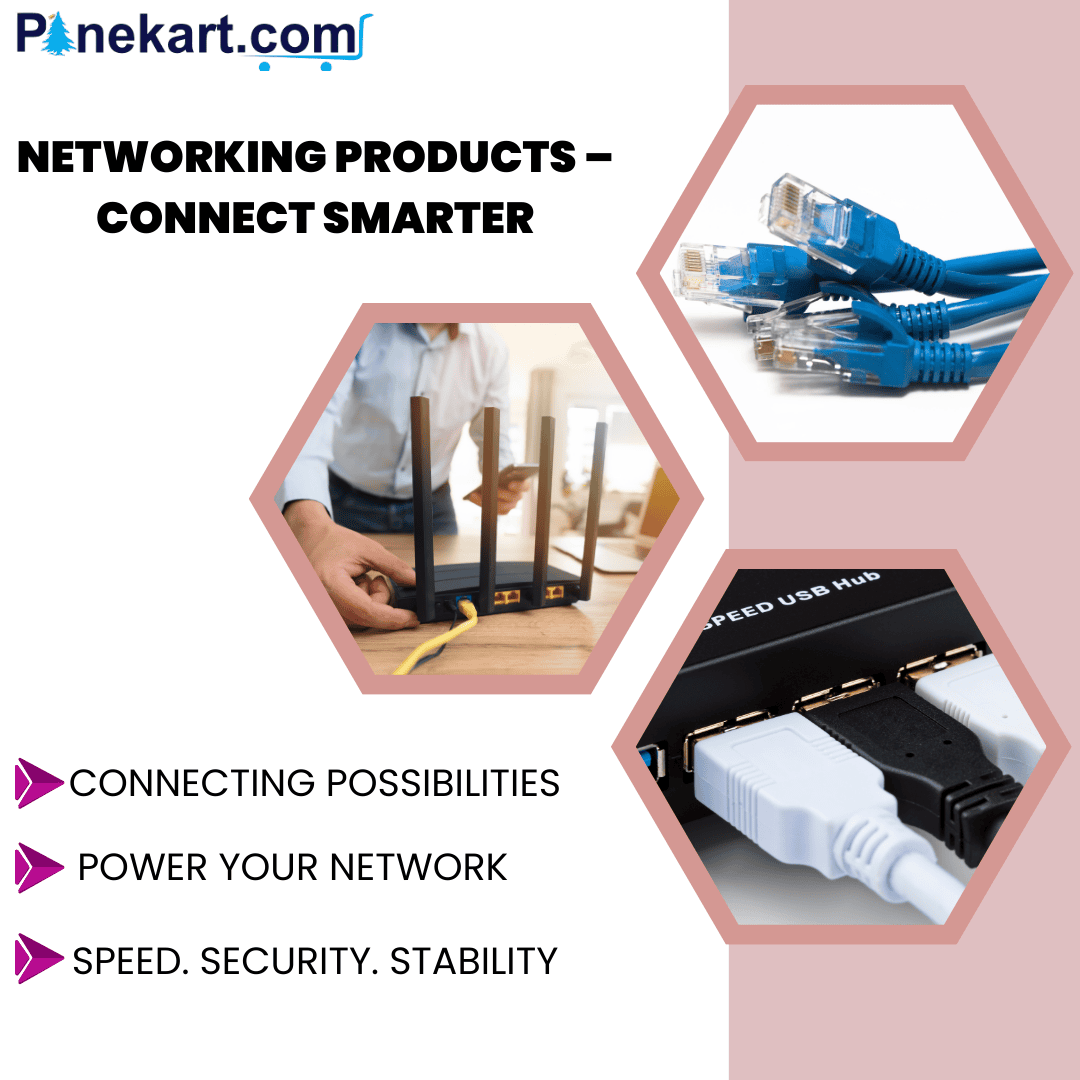In today’s fast-paced digital world, networking products play a crucial role in ensuring smooth communication, data transfer, and internet connectivity. Whether it’s a small home setup or a large corporate network, the right networking devices can make all the difference in speed, stability, and security.
What Are Networking Products?
What Are Networking Products?
Networking products are hardware devices and accessories that connect computers, mobile devices, and other electronics to share data, resources, and internet connections. From home Wi-Fi routers to advanced enterprise switches, these products form the backbone of both personal and professional connectivity.
Types of Networking Products
Types of Networking Products
1. Routers
Routers connect multiple devices to the internet and manage data traffic efficiently.
- Wireless Routers: Ideal for homes and small offices.
- Dual-band & Tri-band Routers: Offer better speed and coverage for heavy usage.
- Mesh Wi-Fi Systems: Provide seamless internet coverage in large areas.
4. Managed Switches: Offer advanced control, security, and network monitoring.
2. Network Switches
Switches connect multiple devices in a network, allowing them to communicate internally.
1. Unmanaged Switches: Easy plug-and-play for basic networking.
2. Managed Switches: Offer advanced control, security, and network monitoring.
3. Access Points (APs)
Access Points extend the wireless network coverage in larger areas like offices, malls, or campuses.
4. Network Cables
1. Network cables like ethernet Cables (Cat5e, Cat6, Cat6a, Cat7): Provide high-speed wired connectivity.
2. Fiber Optic Cables: Offer ultra-fast and long-distance data transmission.
5. Modems
A modem connects your network to your Internet Service Provider (ISP) and converts signals for smooth communication.
6. Firewalls & Network Security Devices
Firewalls, a key part of Network Security Devices, safeguard the network by monitoring and controlling incoming and outgoing traffic.
7. Network Storage (NAS)
Network Attached Storage allows users to store and access data centrally within the network.
Why Networking Products Are Important
1. Seamless Connectivity – Ensures uninterrupted internet and internal communication.
2. Better Productivity – High-speed networks help businesses work efficiently.
3. Enhanced Security – Networking devices with firewalls protect sensitive data.
4. Scalability – Easily expand your network with the right equipment.
5. Cost-Effectiveness – A well-planned network reduces downtime and maintenance costs.
Choosing the Right Networking Products
When buying networking products, consider:
1. Speed Requirements (e.g., Gigabit Ethernet for high-demand networks)
2. Coverage Area (mesh systems for large spaces)
3. Security Features (firewalls, encryption)
4. Device Compatibility
5. Brand Reliability & Warranty
Networking Trends in 2025
1. Wi-Fi 7: Next-gen Wi-Fi standard with lightning-fast speeds.
2. Cloud-Managed Networks: Control and monitor networks remotely.
3. IoT Networking: Seamless connection for smart devices.
4. 5G Integration: Faster wireless networks for homes and businesses.
Conclusion
Networking products are the silent heroes behind every successful internet connection, video call, or file transfer. Whether you’re setting up a home office, expanding a corporate network, or upgrading your current system, investing in high-quality networking equipment ensures speed, stability, and security.



